Police chiefs: What impact have PCCs made?
- Published
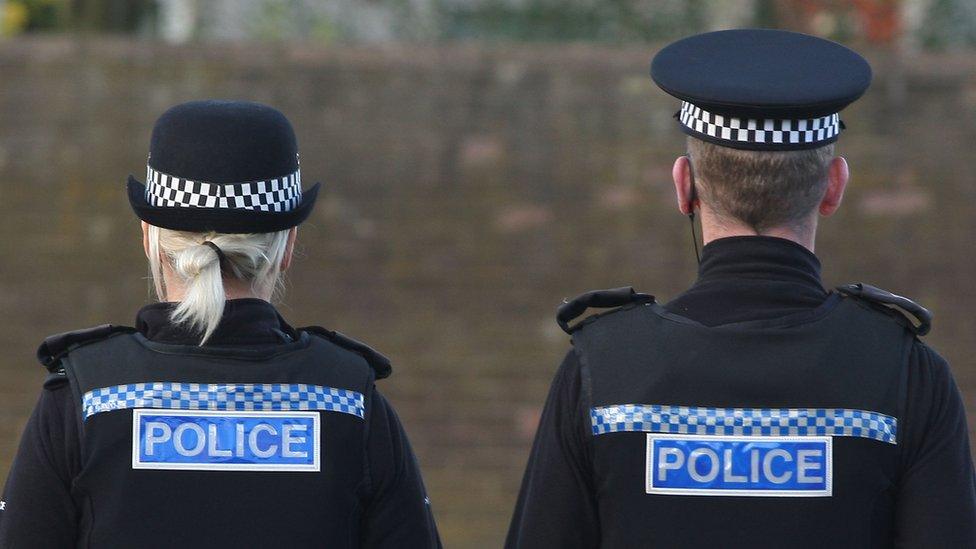
On Thursday 5 May, voters in England and Wales will choose their police and crime commissioners (PCCs) for the next four years.
The only exceptions are in London, where policing will be the responsibility of the newly elected mayor, and in Greater Manchester, where the current PCC will continue in his role until a mayor is elected in 2017.
The first PCCs were elected in November 2012. The system - which replaced police authorities - is now firmly embedded, and the consensus is it will be here for many years to come.
So how have PCCs managed to make their mark?

PCCs have brought about a sense that "the buck stops here". A named individual in each area is now responsible for policing and crime reduction and accountable for the effectiveness of law enforcement policies.
While the home secretary can be held to account for the overall direction of police reform, legislative changes and the government's strategy on counterterrorism, and chief constables take responsibility for operational decisions, it is the PCC who will stand or fall on the record of their local force in fighting crime and delivering services to communities and victims.
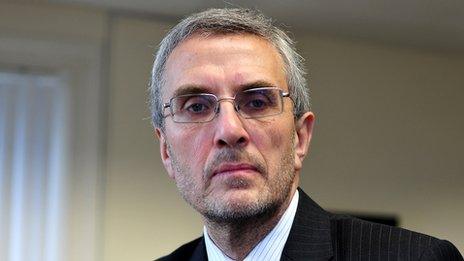
PCC Nick Alston had to respond when Essex Police was criticised in a report
In March, for example, when Essex Police was criticised for failing to protect children at risk of harm, in a scathing report by the Inspectorate of Constabulary, the PCC, Nick Alston, was asked for an explanation, along with the chief constable.
The new PCC for the area (Mr Alston is not standing for re-election) will be expected to ensure improvements are put in place over the coming months and years and will rightly be in the spotlight if they are not.
Of course, before PCCs there were police authorities, comprising local councillors, magistrates and independent members.
They had similar responsibilities to commissioners.
But none of their members was directly elected on their record on policing and crime.
Responsibility for decision making was diffuse and more opaque.
And although each authority had a chairman or chairwoman, there was less incentive and need for them to engage publicly.
The fact a PCC's term of office hinges not on nods, winks and favours but on success at the ballot box means it is incumbent on them to have a higher public profile.
Each has their own website, most use social media to get their views across - Ann Barnes, for example, the commissioner for Kent, has almost 6,000 followers on Twitter - and some appear regularly on radio, regional television and in the local press.
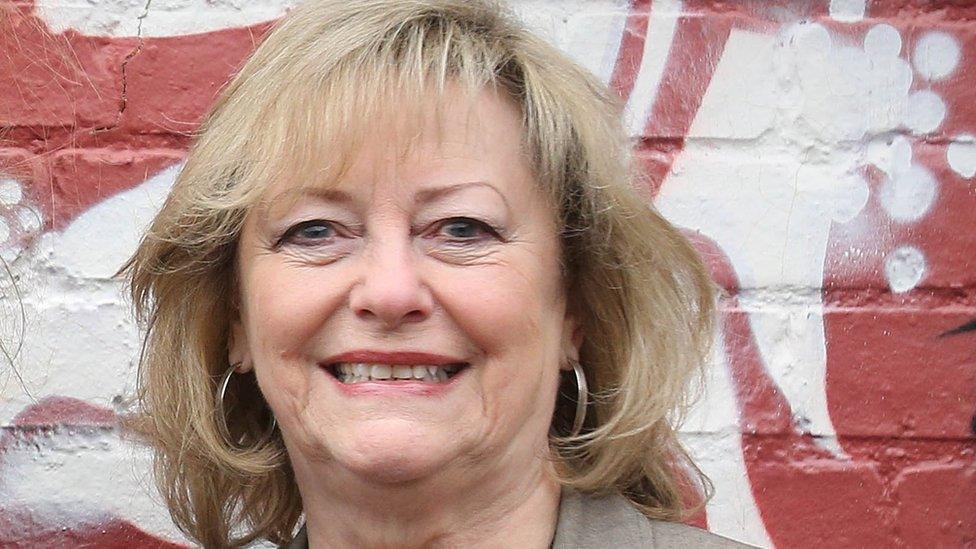
Kent PCC Ann Barnes has thousands of Twitter followers but has also courted controversy
While the turnout at the last election was staggeringly low, 15.1% overall, surveys suggest more people know about the role of police and crime commissioners than before, even if in some areas, from my experience speaking to potential voters, they still don't know who their PCC actually is.

There were warnings investing power over policing in the hands of one individual was a recipe for conflict with the chief constable - and so it has proved in a few notable cases.
The first time it happened was in Avon and Somerset, where, just a day after Sue Mountstevens had been sworn in as the area's PCC, Colin Port announced he would step down as chief constable at the end of his eight-year term. Ms Mountstevens had asked him to reapply for his job.
The following year, Carmel Napier left her post as Chief Constable of Gwent Police after pressure from the PCC, Ian Johnston.
Mrs Napier later told a parliamentary committee she had had to resign following "menacing and bullying" treatment by Mr Johnston - who is not seeking re-election next month. He said her attitude to his role had prevented him doing his job properly.
Mrs Napier said she found her treatment "menacing and bullying"
The most bizarre row came in Lincolnshire, where the PCC, Alan Hardwick, suspended Neil Rhodes, the Chief Constable, for allegedly helping a senior Muslim lawyer from another force pursue a claim of racial discrimination "which he knew to be a contrivance".
The case ended in a damaging and expensive court case and Mr Rhodes's reinstatement.
Nevertheless, in most constabularies, it appears commissioners and chiefs enjoy a good working relationship - some might say too good, cosy even.
A BBC News survey, published in March, found most of the PCCs had appointed a chief constable from within their own force.
What this suggests, above all, is when a deputy chief constable is well thought of by the PCC, they are in pole position when the top job becomes vacant, to the extent it puts external candidates off even applying.

The 2012 crop of PCCs had a range of backgrounds, skills and experience; some were new to the area of policing and criminal justice altogether. Although the novices may have struggled early on, the influx has enabled some "out of the box" thinking.
I've written before about Northamptonshire's visionary PCC, Adam Simmonds, and his ideas for a "free" school with a focus on policing, public service and criminal justice, as well as the pioneering joint police-fire vehicles. Mr Simmonds isn't standing again, but his ideas are likely to live on.
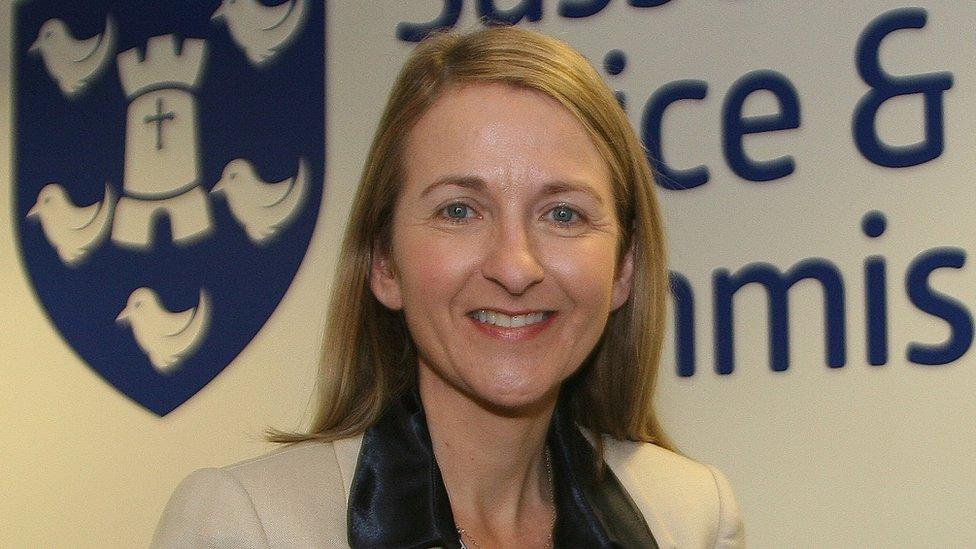
Katy Bourne has introduced new technologies to help Sussex police officers
In Sussex, Katy Bourne, the PCC, is developing "live" link facilities to enable officers to give evidence in court cases from police stations, saving time and money.
Virtual reality courts are now a reality in many areas, with defendants and vulnerable witnesses often appearing remotely, but the idea a busy constable does not have to hang around court waiting to be called but can be at their desk instead may well catch on.
Vera Baird, in Northumbria, has set up a system to deal with low-level complaints against the police, to get them resolved more quickly and satisfactorily.
And, in Hampshire, Simon Hayes has agreed funding to allow volunteers to be used to help tackle cybercrime and other offences where the necessary specialist skills are in short supply.
Of course, we will never know what initiatives police authorities may have conjured up had they continued, but my guess is they would not have been quite so bold as those put in place by PCCs.
The key difference is PCCs are able to get things done quickly, without endless committees and consultations, aware, nonetheless, their decisions will be subject to public scrutiny.

Although PCCs set their force's budget and strategy, and have the power to hire and fire chief constables, it is increasingly clear their greatest influence is in being able to pull strings - to bring the disparate and unwieldy parts of the criminal justice system together.
At a time when police forces are having to collaborate with each other because of budget constraints, and work more closely with other blue-light services, the commissioner's role is developing into that of a facilitator.
They can see where the gaps are, where there is duplication and waste, and where there is room for a more streamlined service.
They are the one person in the area with responsibility for police and crime.
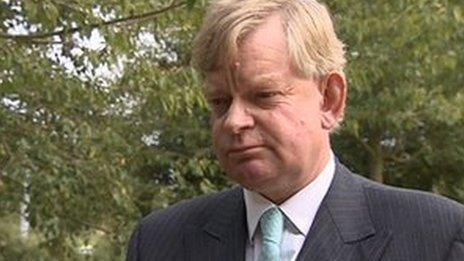
Norfolk PCC Stephen Bett says the role gives you great insight into a community
At present, there is little but anecdotal evidence this is making a difference.
A quiet word in a corridor that smoothes the path to joint working, a meeting behind closed doors that helps cut red tape, patient negotiations that secure extra funding - these are not quantifiable or public achievements, but it is here the PCC comes into their own.
Stephen Bett, Norfolk's PCC, says: "You can cover right across every public service, every voluntary group, charitable group that is involved in the criminal justice system.
"You have a great insight and you're able to to get people to work together who wouldn't normally do so."

The introduction of police and crime commissioners was a risk. Theresa May, the Home Secretary, even admitted she feared she had created a "monster".
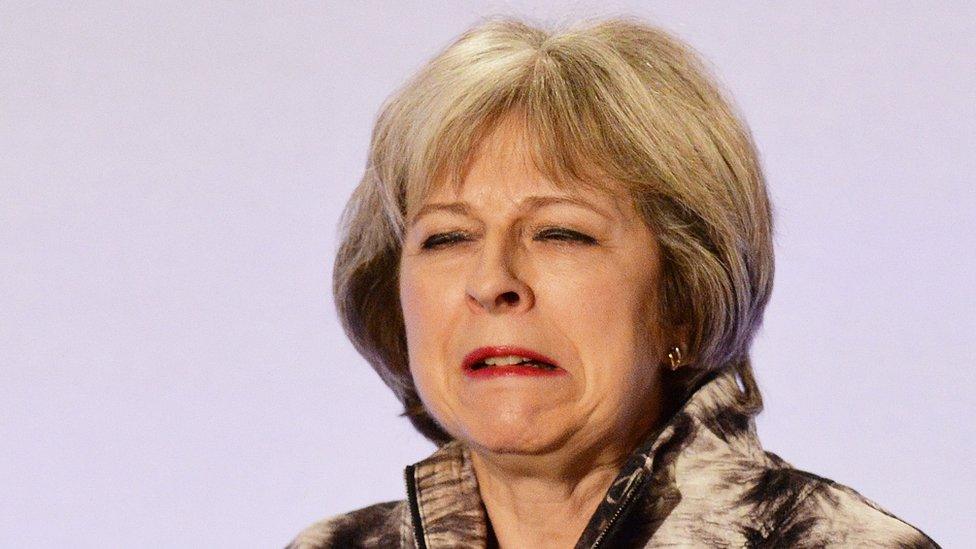
Theresa May feared she had created a monster and said a number of incidents had given PCCs a "bad name"
While police authorities were accused of being too sleepy, at least there were few public scandals attached to them.
By contrast, PCCs have attracted a heap of hostile headlines that have called into question the decision to establish the role.
There was a series of negative stories from Kent, involving the PCC, Ann Barnes, arguably the most damaging of which was the fly-on-the-wall documentary about her: certainly a low point in the history of PCCs so far. She is not standing again.
The resignation wrangle over South Yorkshire's former Commissioner Shaun Wright demonstrated a flaw in procedures for holding PCCs to account during their time in office.
And Surrey PCC Kevin Hurley's criticism of his former Chief Constable Lynne Owens showed how ugly things could get when politics, policing and personalities collided.
There have been countless other stories too about expenses, indiscretions and mistakes, some excusable, others less so.
The Independent Police Complaints Commission has conducted or managed 10 investigations overall into allegations involving PCCs.
Some might view that as a high number, given there are only 41 of them.
Others would say it is a low return when you consider their unique public profile.

More information about the candidates in your area is available at the Choose My PCC, external website.
- Published21 April 2016
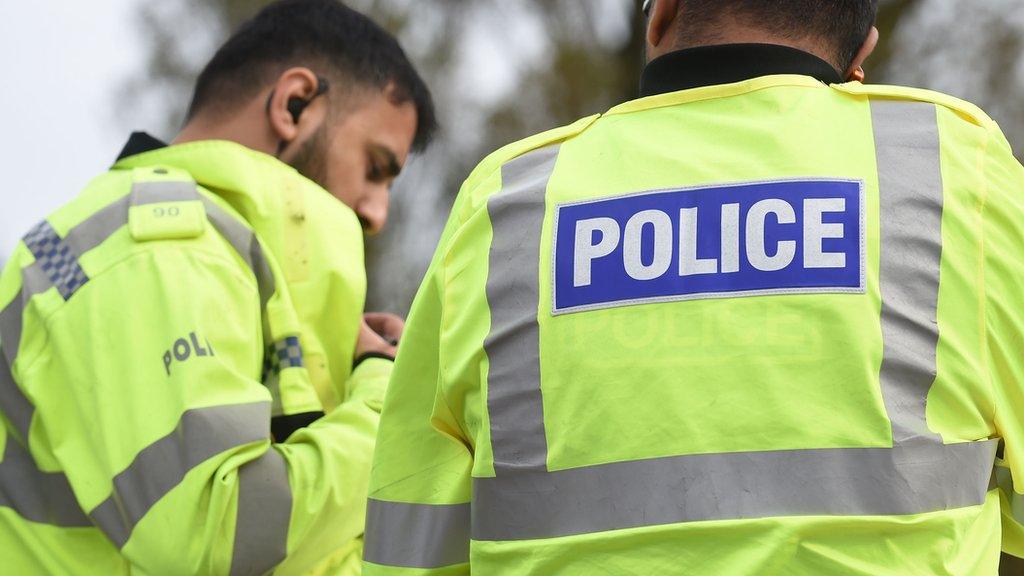
- Published4 April 2016
- Published25 March 2016
